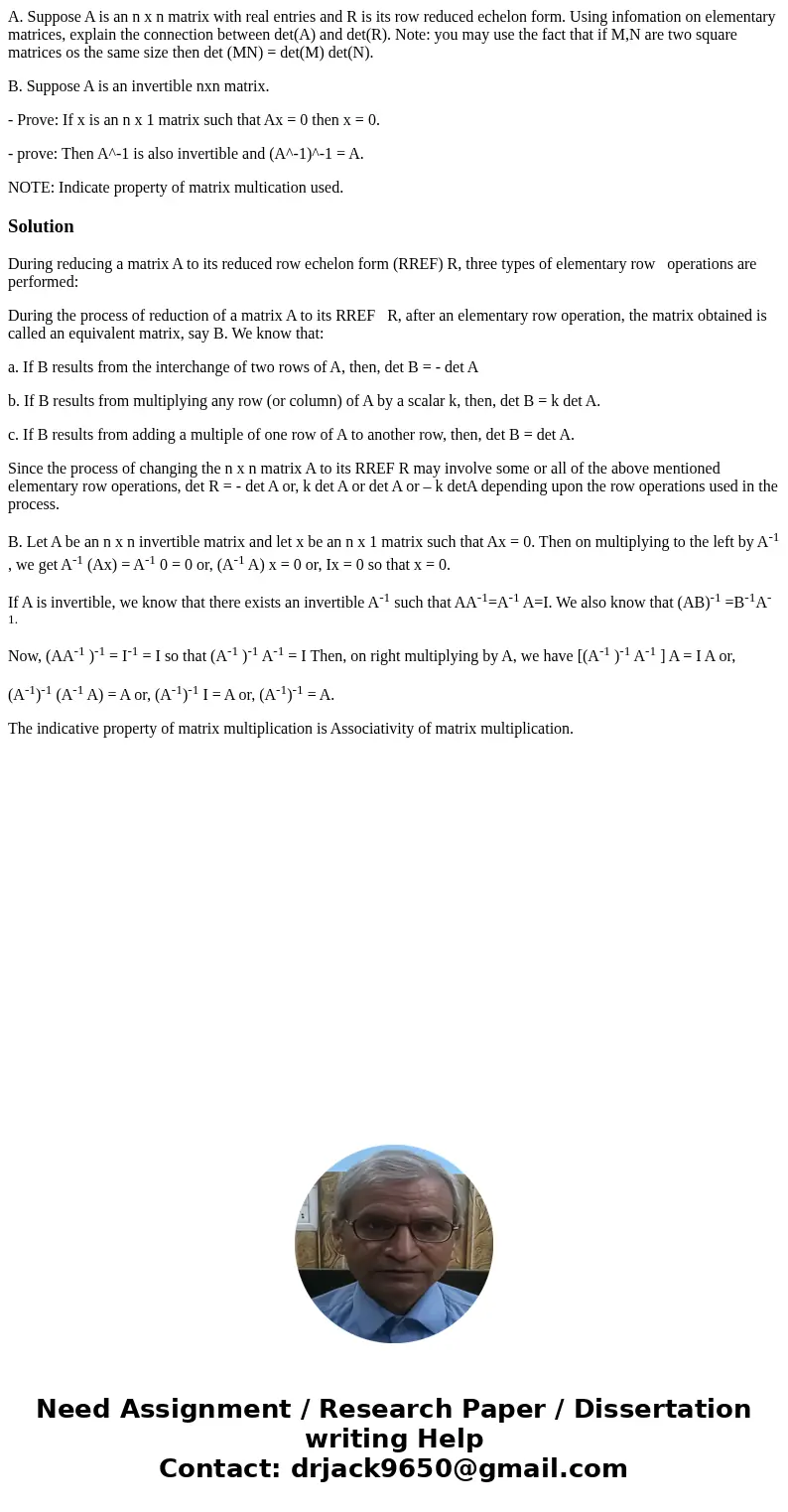A Suppose A is an n x n matrix with real entries and R is it
A. Suppose A is an n x n matrix with real entries and R is its row reduced echelon form. Using infomation on elementary matrices, explain the connection between det(A) and det(R). Note: you may use the fact that if M,N are two square matrices os the same size then det (MN) = det(M) det(N).
B. Suppose A is an invertible nxn matrix.
- Prove: If x is an n x 1 matrix such that Ax = 0 then x = 0.
- prove: Then A^-1 is also invertible and (A^-1)^-1 = A.
NOTE: Indicate property of matrix multication used.
Solution
During reducing a matrix A to its reduced row echelon form (RREF) R, three types of elementary row operations are performed:
During the process of reduction of a matrix A to its RREF R, after an elementary row operation, the matrix obtained is called an equivalent matrix, say B. We know that:
a. If B results from the interchange of two rows of A, then, det B = - det A
b. If B results from multiplying any row (or column) of A by a scalar k, then, det B = k det A.
c. If B results from adding a multiple of one row of A to another row, then, det B = det A.
Since the process of changing the n x n matrix A to its RREF R may involve some or all of the above mentioned elementary row operations, det R = - det A or, k det A or det A or – k detA depending upon the row operations used in the process.
B. Let A be an n x n invertible matrix and let x be an n x 1 matrix such that Ax = 0. Then on multiplying to the left by A-1 , we get A-1 (Ax) = A-1 0 = 0 or, (A-1 A) x = 0 or, Ix = 0 so that x = 0.
If A is invertible, we know that there exists an invertible A-1 such that AA-1=A-1 A=I. We also know that (AB)-1 =B-1A-1.
Now, (AA-1 )-1 = I-1 = I so that (A-1 )-1 A-1 = I Then, on right multiplying by A, we have [(A-1 )-1 A-1 ] A = I A or,
(A-1)-1 (A-1 A) = A or, (A-1)-1 I = A or, (A-1)-1 = A.
The indicative property of matrix multiplication is Associativity of matrix multiplication.

 Homework Sourse
Homework Sourse